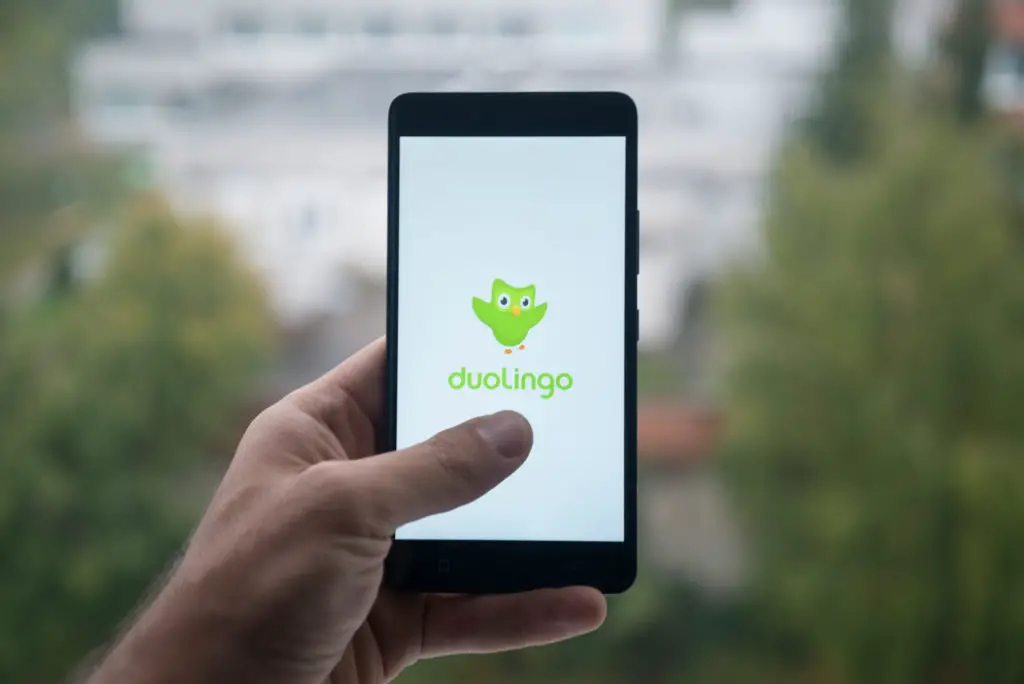Last updated: March 25, 2023
Taking Dutch courses doesn’t have to cost a ton of money.
What you will spend learning Dutch can vary substantially depending on whether you would like to purchase courses, books, or prefer to follow a more DIY route.
A typical live classroom course aims to take you from your current level to the next level up (e.g. from A0 to A1) and can cost anywhere between € 187 and € 1,050 per level. Online courses and apps range from free to € 60 per level, and private lessons can range from € 4 to € 77 per hour.
With enough dedication, I believe there is a path to learning Dutch no matter what your budget is.
Given this article is all about the cost of various Dutch courses, I will not focus too much on YouTube and other free course options. For this you can check out 7 free Dutch courses you can take online (2022).
Cost of online Dutch courses (€ 0 to € 60 per level)
There are a number of online course options which are not classroom style but rather pre-recorded video or presentation style courses.
These are more affordable than an in-person course and allow for more flexibility since you can watch lessons at your own pace.
Typically such courses are also organized by level. Here are a few examples of beginner level courses you can find online:
Learn Dutch with Kim
University of Groningen
- Introduction to Dutch (free)
Learn Dutch with Alain (Udemy)
- Dutch 1-3: the Dutch language for beginners € 10 – € 60 per level
Learn Dutch with Bart de Pau
- Dutch Grammar 1 € 49
Based on these online video courses, it will cost up to € 60+ per level to take an online course without live teacher instruction.
Cost of mobile and desktop apps (€ 0 to € 88 per year for access to all levels up to B2)
Language learning apps are designed for absolute beginners with no prior knowledge of the language — this can be a great place for all learners to start.

Duolingo
You can think of Duolingo as a course which aims for you to achieve B2 in your target language upon completion.
A 2021 study found that after completing a seven unit course on the app, learners performed as well on reading and listening comprehension exercises as students who completed five semesters of a university language course.
I personally used Duolingo and do recommend it whenever people ask me for suggestions on how to get started. Particularly on the web browser version of Duolingo, there are extensive explanations for many of the topics in the Dutch course.
Duolingo is completely free to use.
You start each day with up to 5 “hearts”. Hearts are like lives, and you lose a heart each time you make a mistake during your practice. If you lose all your hearts, you can no longer practice (until they replenish themselves or you earn them back).
Super Duolingo is available for € 7.34 per month (after a two week free trial period) and lets you practice ad-free, and with unlimited hearts.
A Super Family plan is also available for up to 6 accounts and costs € 10.25 per month with the same benefits as Super Duolingo.
As with most courses, I do not believe it will get you to that B2 level on its own. Fluency comes from a lot more input and output — hearing/comprehending spoken Dutch and speaking the language yourself and getting people to correct you on your mistakes.
With enough consistency, Duolingo can help you reach B2 upon completion and will run you from € 0 to € 88 per year depending on your plan.
Memrise
Memrise is another great app which you can use on both mobile or desktop to learn Dutch.
Their value comes from having in-house linguists who help contribute to a curriculum full of useful, everyday Dutch.
The app uses an algorithm (spaced repetition) which predicts when a given word or sentence is likely to fall out of your memory. That’s when the term will pop up again during practice for you to review. This spaced repetition system supposedly leads to stronger memories.
Much of the course is available free of charge, however there are additional features such as listening exercises, and difficult words which can be unlocked by purchasing the pro version, in addition to being ad-free.
Without the pro version you still have access to a 7-part Dutch course of on average 7 hours of learning material per chapter. This is just the course created by Memrise but there are also tons of courses uploaded by fellow Memrise users.
The pro version costs € 6.99 per month or € 49.99 annually. And for € 99.99 you can purchase lifetime access to Memrise Pro.
Cost of group Dutch courses (€ 187 to € 1,050 per level)
Group courses are the most expensive option but probably the best quality given the one-on-one instruction you’ll receive.
Even if you choose for online group courses (over Zoom for example) you will still get the chance to have conversations in Dutch and receive corrections and feedback on your grammar and pronunciation.

Another advantage is that these courses often also come with some material which you can use upon completion of the course.
As with the online courses, these tend to be organized by level. A few examples of courses (online only):
Virtual group courses
Vivo Dutch
- Vivo Dutch Language Kickoff A1 (8 weeks) € 187
- Vivo Dutch Language Launch A2 (8 weeks) € 187
Koentact
- Dutch Online Evening Course A1 (5 weeks, 10 lessons) € 360
Learn Dutch with Bart de Pau
- Virtual classroom Level 1 A0/A1 (6 weeks, 10 lessons) € 495
In-person group courses
In-person classrooms are starting to open up again and are preferred by many students. Some examples include:
Taalthuis
- Beginners Basic Course A0/A1 (30 hours) € 525
Learn Dutch with Bart de Pau
- Dutch Winter School Level 1 A0/A1 (40-50 hours) € 595 – € 795
Dutch Courses Amsterdam
- Evening Course @ School A0/A1 (32 hours) € 675
Koentact
- Dutch Evening Course A1- (31 hours) € 465
- Intensive Dutch Course A1+ (25 hours) € 545
*Their lessons appear to be taught in half-levels, so to achieve A1 in the intensive course you would take two courses at € 545 each — or € 1,090 per level.
Online group courses will therefore run you anywhere from € 187 to € 495 per level. In-person courses will cost between € 525 and € 1,090.
Cost of private Dutch courses
italki (€ 4 to € 77 per hour)
italki is an online platform that connects students with either qualified language teachers, or community tutors (native speakers willing to tutor you in your target language).
Each tutor can determine his or her own rate.
As of today there are tutors available between € 4 and € 77 per hour on the platform.
Private tutors
Most Dutch language schools also offer private one-on-one lessons to students. Prices are often not listed online, however based on my own research (in 2021) the cost of private virtual lessons can be up to € 65 per hour.
In summary
As you can see the cost of Dutch courses can vary significantly. However as with most things, you do get what you pay for!
A course led by an instructor will likely accelerate your Dutch more rapidly than an unguided online course or mobile app.
But it’s comforting to know (for the dedicated DIY-ers) that you can also learn Dutch for free (or as low as € 60 per level) with resources available online.
No matter what your budget is, anyone with access to the internet can learn Dutch.
Succes! Good luck!




Really helpful info summarised here, thanks!
Thanks for reading!